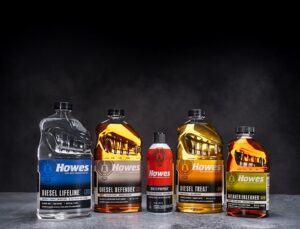As businesses grow, their employees need to travel every day, safely and quickly. The demand for effective staff transportation has changed from a luxury to a necessity. In this case, the right commercial bus isn’t only a transport for business; it’s also an extension of the workplace on wheels. It’s the start and conclusion of the workday.
Picking the right vehicle, one that fits the needs of the workers and the route, is not an easy choice. In India, where the conditions for getting to work change quickly from one area to the next, choosing the right bus can make a big difference in cost, comfort, and safety.
A commercial intercity bus is more than just a vehicle; it’s an asset for your business. Employees have to travel a long way to go to their jobs, factories, and offices. A bus that doesn’t have air conditioning, padding, or enough room for your legs can make every travel tiring. Over time, this makes people less focused and less happy.
On the other hand, a well-built commercial bus maintains the ride smooth. Air conditioning, shock-absorbing suspension, and noise insulation all help make the place quieter. When workers come in feeling good, they do better work. Attendance stays steady when the commute is the same every day. A good bus makes it easier to have a pleasant day at work.
Price Isn’t the Only Thing That Matters When It Comes to Cost
When businesses look at the prices of buses in India, the lowest offer could look good. But the first price doesn’t show the full value. The total cost of ownership is affected by how often you have to do maintenance, how fuel-efficient the bus is, and how easy it is to find spare parts.
On roads, a diesel engine can work well. CNG might operate better in cities. Electric buses save down on pollutants and fuel expenses, especially on routes that don’t change. To get the correct commercial vehicle, you need to match the engine to the route.
Time off costs money. A bus that breaks down a lot messes up timetables and makes things harder for everyone. A model that works well, even if it costs a little more, will save you money in the long run.
Safety Isn’t a Bonus; It’s a Must
Every morning, hundreds of people in India get on buses run by firms like yours. What you choose will affect their safety. Safety elements are required these days.
A decent business bus should have:
- ABS gives you improved control on slick roads
- Everyone in the bus should wear a seat belt.
- GPS tracking for visibility in real time
- Speed limits to stop people from driving too fast
- Emergency exits in case of an emergency
These criteria are now required by law. But these features do more than just meet requirements; they also generate confidence. Workers feel safer. Businesses have fewer risks. It’s a win all around.
Some businesses need big buses that can hold 50 people to carry a lot of things at once. Some people need small 20-seater buses for city routes that are only a few blocks wide. The Indian bus market has both of these things and a lot more.
Different manufacturers offer different configurations to meet different demands. You can adjust the seating arrangement, add USB connections, or route display panels. A fleet that can grow with your workers. That keeps everything running smoothly and saves money.
Think carefully before you pick a commercial bus in India. Is your team going to grow? Will the path change? Can the same bus do both?
Brand image is important, and so is sustainability
Policies from the government are encouraging green transportation. Companies are supposed to follow. People notice, regulators do too.
Using electric or CNG-powered buses instead of diesel buses in India helps the country reach its clean energy targets. These buses save money on fuel, get incentives, and help the business look responsible.
Electric buses now perform well on set routes in cities. Charging stations are popping up all over cities. They are great for short trips. Hybrid models might be a better option for longer excursions. If you want your business to thrive without hurting the environment, you need to choose the right mode of transportation.
Choosing the right bus is a strategic choice
Tata, Ashok Leyland, Eicher, and more companies sell commercial vehicles in India. Each brand has its own strengths. But don’t just think about the brand; think about how well they fit together. Ask:
- Is the sleeper bus right for the terrain?
- Does the service network function in your area?
- Will spare parts be easy to find?
- Is this sort of fuel useful in your area?
- Is the price the full cost or simply the sticker price?
These inquiries get to the heart of the matter. They help you make smarter, longer-lasting choices.
Last Words:
Transportation isn’t only a place to spend money. It connects people, processes, and productivity. The commercial mini bus you choose will either help or hurt your employees. Your choice is more important than ever in India, a country that is so big and diverse that every commute is a new challenge. Choose wisely, not only for today, but for every trip you take in the future.



